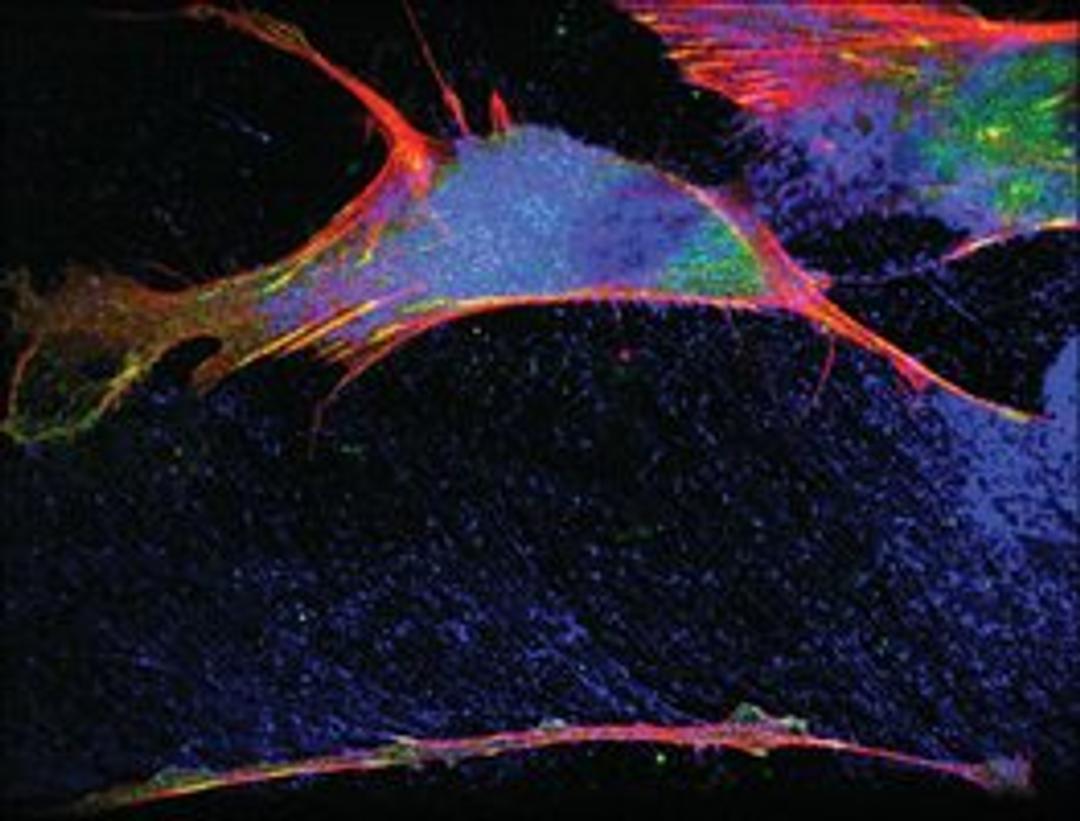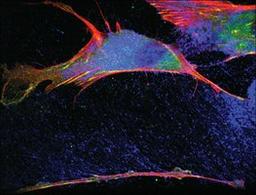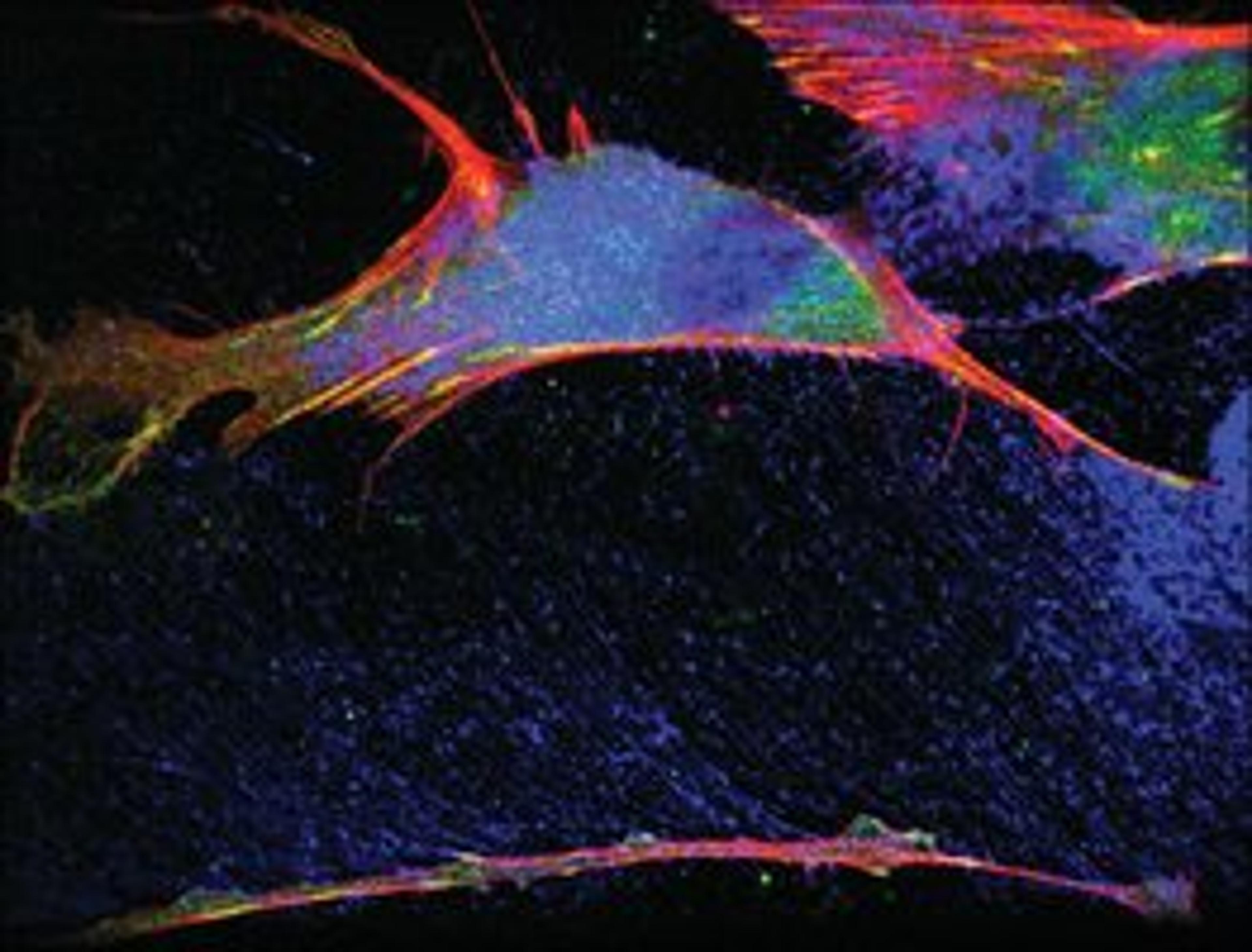Monoclonal Anti-Vinculin antibody produced in mouse
Product Details
- Cat. No.
- V9131-.2ML
- Type
- Primary Antibody
- Clonality
- Monoclonal
- Host
- Mouse

The supplier does not provide quotations for this antibody through SelectScience. You can search for similar antibodies in our Antibody Directory.
Description
Vinculin is a cytoskeletal protein associated with the cytoplasmic faces of both cell-cell and cell-extracellular matrix adherens-type junctions that functions as one of several interacting proteins involved in anchoring F-actin to the membrane. The sequences of chicken, nematode and human vinculin have been determined.A sequence of molecular interactions might be involved in the transmembrane assembly of adhesion plaques. In the assembly of adhesion plaques, the ß-subunit of integrin binds to talin. Talin binds to vinculin that interacts with a-actinin and possibly with itself. Since a-actinin binds to and cross-links actin filaments, vinculin represents a key element in the transmembrane linkage of the extracellular matrix to the cytoplasmic microfilament system. In muscle, vinculin is localized in the fascia adherens of the intercalated disk (cardiac muscle), myotendinous junctions (skeletal muscle), neuromuscular junctions and the membrane-associated dense bodies of smooth muscle. In many cell types undergoing viral transformation, vinculin becomes redistributed to rosettes or podosomes.
Biological Information
- Clonality: Monoclonal
- Host: Mouse
- Reactivity: Bovine, Chicken, Dog (Canine), Frog, Human, Mouse, Rat, Turkey
- Isotype: IgG1
Handling
- Storage: -20°C
- Specificity: 4
Applications
- Immunofluorescence (IF)
- Immunohistochemistry (Paraffin-Embedded Sections) (IHC (P))
- Western Blotting (WB)
Performs well.
Immunohistochemistry
The product is quite specific, but even with all the appropriate blocking, we see some unspecific binding.
Review Date: 4 Dec 2018 | Merck KGaA, Darmstadt, Germany



